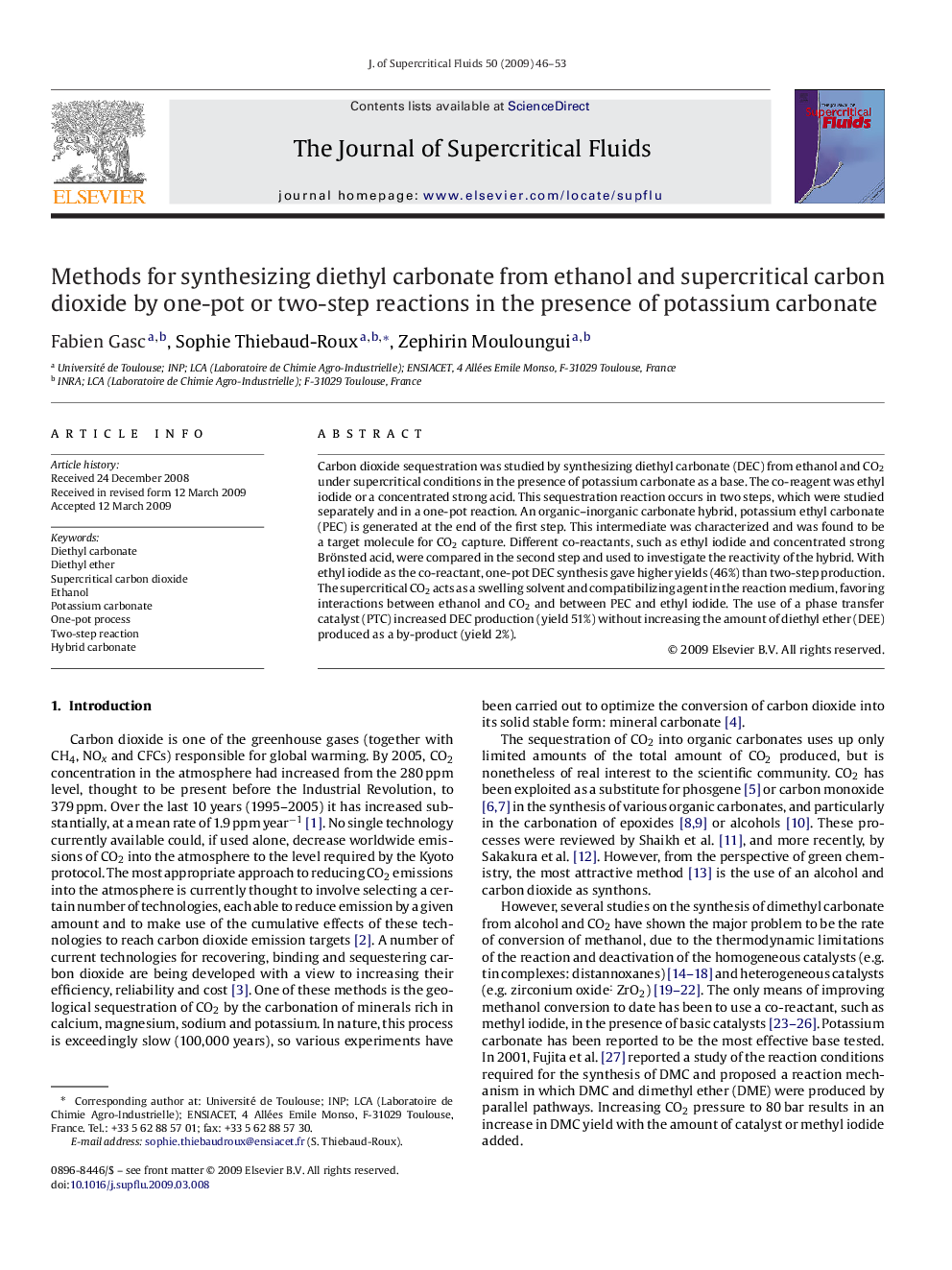| Article ID | Journal | Published Year | Pages | File Type |
|---|---|---|---|---|
| 231627 | The Journal of Supercritical Fluids | 2009 | 8 Pages |
Carbon dioxide sequestration was studied by synthesizing diethyl carbonate (DEC) from ethanol and CO2 under supercritical conditions in the presence of potassium carbonate as a base. The co-reagent was ethyl iodide or a concentrated strong acid. This sequestration reaction occurs in two steps, which were studied separately and in a one-pot reaction. An organic–inorganic carbonate hybrid, potassium ethyl carbonate (PEC) is generated at the end of the first step. This intermediate was characterized and was found to be a target molecule for CO2 capture. Different co-reactants, such as ethyl iodide and concentrated strong Brönsted acid, were compared in the second step and used to investigate the reactivity of the hybrid. With ethyl iodide as the co-reactant, one-pot DEC synthesis gave higher yields (46%) than two-step production. The supercritical CO2 acts as a swelling solvent and compatibilizing agent in the reaction medium, favoring interactions between ethanol and CO2 and between PEC and ethyl iodide. The use of a phase transfer catalyst (PTC) increased DEC production (yield 51%) without increasing the amount of diethyl ether (DEE) produced as a by-product (yield 2%).
Graphical abstractFigure optionsDownload full-size imageDownload as PowerPoint slide
